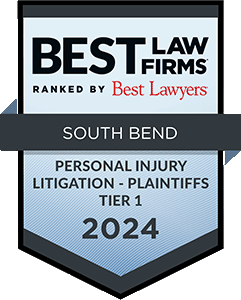So, you’ve suffered an injury due to an accident that was someone else’s fault. You think you may have a case to sue them for your medical expenses and property damage, but there’s more to it than that. Even after you seem to have recovered from your physical injuries, the affects of the accident still haunt you, and are debilitating at times. If you have been injured in an accident contact one of our South Bend personal injury attorneys for a free consultation today.
You wonder if this Is this real?
Psychological trauma can be just as damaging as physical trauma, and often the right treatment could be more illusive (and expensive), because psychological trauma can come in a number of forms. It could be traceable to a physiological cause, such as nerve damage, or it could not. Some people experience post traumatic stress disorder (PTSD) after an accident. The good news is that there are treatments available, and you do deserve recompense for these very real injuries. They can be caused by someone else’s negligence just as easily as physical injuries, and getting the money you need to pay for treatment can be approached largely the same way.
3 Things to Do after an Accident
1. PTSD-Get Help
The sooner treatment for psychological trauma can begin, the better for the patient. The physician who treated your physical injuries should be able to refer you to counselor, who can advise you on the next step to take. If it has been determined that you have PTSD there are treatment plans that can help.
Many people are afraid to seek help for psychological trauma because they are reluctant to associate with the mental health profession at all—perhaps for fear of not being considered “healthy” or “normal”—and this can prolong or even halt the healing process. This is a real problem that is not just in your head, and it’s alright to admit that you need help. In fact, you owe it to yourself.
2. Speak to a Personal Injury Lawyer
If you haven’t yet contacted your lawyer, make a list of questions to ask them, so that you remember them all when you meet. Be sure to make sure he or she is aware of all the injuries you’ve sustained, whether physical or psychological.
3. Keep Records of Everything
The single most useful piece of evidence in a case involving psychological trauma could be the records (such as invoices and receipts) of treatments you’ve received for psychological trauma.
A judge and jury are much more likely to be convinced that the injury you sustained was real if that claim is substantiated by medical professionals.
Don’t let fear keep you from seeking the help that you need, and that you are entitled to. Talk to South Bend’s Accident Lawyers today.








